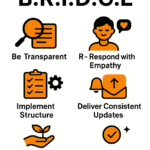The reality about finding wellness is that you can’t do it alone. As a human being and as a member of the legal profession, you need help from professionals, including mentors, coaches, psychotherapists, counselors, and accountability partners. Today, we shed some light on the mental health benefits of having a coach and (or) a mentor.
Why is wellness significant? The following quote by Penn Carey School of Law summarizes it wholesomely and accurately.
“One of the outcomes of wellness is that there are more and more lawyers practising in a variety of legal specialities and sectors who understand the relationship between mental health, well-being, and professional success. These individuals are well-positioned to shape company culture and, as they move into senior roles, to manage firms and organizations in ways that foster genuine well-being.”
Given the crucial relationship between mental health and professional success, it’s advisable to explore all avenues and tools at your disposal to ensure your mental health is at its optimum. Lucy Ocharo, An advocate of the High Court and the in-house counsel at EED Advisory Ltd, is one lawyer who has leveraged a coach for her career growth and mental health.
Today, we draw from Lucy’s experience working with a coach to explore the mental health benefits coaches offer professionals. Moreover, we highlight the differences between a coach and a mentor to help you establish the kind of support you should have at a particular point in your professional life.
The Mental Health Benefits of a Coach: Lucy Ocharo’s Journey
Lucy Ocharo is a shining star, showcasing nothing short of excellence throughout her legal career. Her legal journey began in 2014 when she won the All Kenya Moot Court Competition while undertaking her LLB at Kenyatta University. She received an internship placement at Anjarwalla and Khanna Advocates, who were among the event sponsors, yet she hadn’t heard of the firm then.
Fortunately, Lucy had a mentor, Mr Muriithi Wanjau, an Advocate of the High Court, with whom she had been paired under the African Youth Leadership Forum. She was hesitant to take the internship with Anjarwalla & Khanna since she was passionate about human rights and environmental law, while the internship placement was at a corporate-commercial law firm.
Her mentor, Mr. Wanjau, advised her that having Anjarwalla & Khanna, East Africa’s leading corporate commercial law firm, on her CV would be a career boost. True to her mentor’s advice, taking that internship turned out to be the best decision for her career. Rather than a three-month internship, Lucy stayed at Anjarwalla & Khanna for six years.
While at Anjarwalla & Khanna, Lucy rose through the ranks from an intern to become an associate. She was seconded to SWVL Kenya and even joined the company as in-house counsel. After SWVL shut its Kenyan operation, she moved to Carepay Limited before joining EED Advisory Limited in April 2024.
So, what inspired Lucy to seek coaching, and how has coaching influenced her mental health and professional growth?
Lucy is a stickler for wellness in all spheres of life. In addition to going to the gym thrice a week to maintain physical fitness, she is conscious of her emotional and mental well-being.
According to Lucy, she’s the first lawyer in her family. Therefore, her entire family, including her grandparents, hold her to society’s presumptions of what being a lawyer should look like.
“In my family’s eyes, a lawyer goes to court. So, to this day, I must explain to them what a corporate commercial lawyer does, yet it fails to sink in because they know a lawyer should go to court. Therefore, my current family environment cannot support my career trajectory because they don’t understand where I’m at.”
While Lucy’s family loves her dearly and supports her in areas where they are familiar, they are not clear on the kind of support to render to her professionally. According to Lucy, she noticed this early on in her career. Moreover, this realization coincided with her secondment at SWVL Kenya; the move required her to make significant professional decisions.
Lucy’s situation is anything but unique. On the one hand, having a support system characterized by family, friends, or even professional organizations creates a sense of belonging, which is good for your mental health. However, the fact is that the people around you always have a vested interest.
While these vested interests can be simple and often well-intentioned, they can do more harm than good, depending on relationship dynamics. For instance, a parent’s need to assert their bragging rights or pressure from that family friend to join a certain practice area can cause stress, internal conflict, or taint your worldview. All these factors negatively impact your mental health and may even impede your professional growth.
Therefore, a coach is an independent individual who listens, supports, and empowers a professional to achieve specific personal goals primarily through non-directive training and guidance. Non-directive guidance means that you already have, at the very least, a vague idea of what you want to do or where you want to be professionally. Essentially, you are the expert and not the other way around.
Therefore, coaches using the non-directive approach help you achieve a clear vision and empower you through knowledge, tools, and skills that you can utilize to achieve what you already know you can. Such tools may include road-mapping exercises, quizzes, and wheel-of-life assessments.
Professional Benefits of Engaging a Coach
Lucy first considered engaging a life coach after sharing her challenges in gaining the support she required with a friend. Her friend recommended a coach whose services she has retained to date. Below are the crucial ways her coach has enabled her to navigate and grow her legal career.
-
Professional Clarity
Lack of clarity on your career trajectory can be a source of stress that piles on to the job-related stress, endangering your mental well-being. However, a coach can mitigate this by helping you figure out where you want to be professionally and guiding you through actionable steps you can take to get there.
“The coach and I had that entire process where we highlighted different areas of my life, where I wanted to be, and what I needed to do to get there. We then started making decisions, career moves, and professional moves, which included me acquiring some of the certifications I have today.”
For instance, if I were to converse with anyone else, they’d likely ask me why I need certification in risk and compliance in the financial services sector. However, my experience as an in-house counsel supporting businesses through financial tax issues has empowered me to identify issues that could be controlled and mitigated during the preliminary stages to avoid incurring costly penalties.”
-
Confidence
During the conversation that generated this piece, Lucy was a ball of energy opening up her experiences, the good and the bad. She admits that coaching has played a significant role in the confidence she embodies today.
“If I’m being honest, three or four years ago, I don’t think I’d be able to speak to you the way I’m speaking right now. That’s what coaching does it opens you up.”
-
Navigating Workplace Culture, Politics, and Trends
The reality at most workplaces is that everyone has an agenda, including your superiors and human resource managers. Therefore, the fear that opening up to a colleague, a senior associate, or even the human resource manager about the challenges you face at the workplace could be your undoing is real.
Also, as highlighted above, family and friends have vested interests and tend to project when offering advice. For example, someone who has never experienced a toxic work environment may not understand why you would ponder quitting your job due to an unconducive work environment. Also, someone who has worked at a single firm their entire life may not understand job-hopping as a strategic move to build your skill set and broaden your network.
However, coaches are familiar with corporate cultures and trends across different industries, practice areas, and perhaps even law firms and companies. Moreover, they have no affiliation with your employer or vested interests in your career, so you can open up to them about such challenges without fear of consequence.
“You can navigate some of these issues when you have an independent person who listens to you from a wholesome perspective and guides all aspects of your life. Moreover, paying a coach activates a confidentiality clause, meaning they cannot use or disclose the information you share.”
Initially, Lucy had bi-monthly sessions with her coach. However, once she met her career goals, she reduced the frequency to a necessity basis.
Also, personal matters often influence professional lives. Therefore, Lucy also sees a second coach, a therapist, to help her navigate significant life changes.
Why is a therapist necessary? She says that you can’t figure everything out on your own. When you go through tough emotional challenges and heartbreaking transitions in your relationships, therapy is a safe space to express yourself.
“I realized that if I didn’t deal with my problems, disappointments, heartbreak and others, it would affect other areas of my life. Talking to a therapist when I need to helps me heal my internal emotional turmoil. That way I don’t go lashing out at people especially at work just because of something I’m going through. The good thing is that both the therapist and the coach are bound by the oath of confidentiality. Your private information is safe with them.”
Lastly, work-life balance
A work-life balance is one of the crucial ingredients for wellness all-round. You can find your solutions. It’s not a one size fits all. The important part is maintaining the building blocks that will foster wellness for you.
According to Lucy, although achieving perfect wellness is impossible, it’s our actions that set us up on the path to wellness in all spheres. The most important part is to have the motivation that leads you to set goals. You’ll employ the necessary strategies to achieve the goals you’ve set.
Lucy wants to live healthy, long, and strong while at it. So, when she works backward, she employs different strategies to achieve those goals.
To her, mental and emotional wellness through therapy, physical wellness through consulting a career coach, and career wellness through counseling set her up to attain her goals. She emphasizes how crucial it is for every professional, including those outside the legal profession, to seek the services of a coach.
Lucy got a coach via a referral, which is among the best ways to go about it. Alternatively, you can check out online resources like Africa Coaching Network to find a coach that aligns with your wellness and career needs.




















